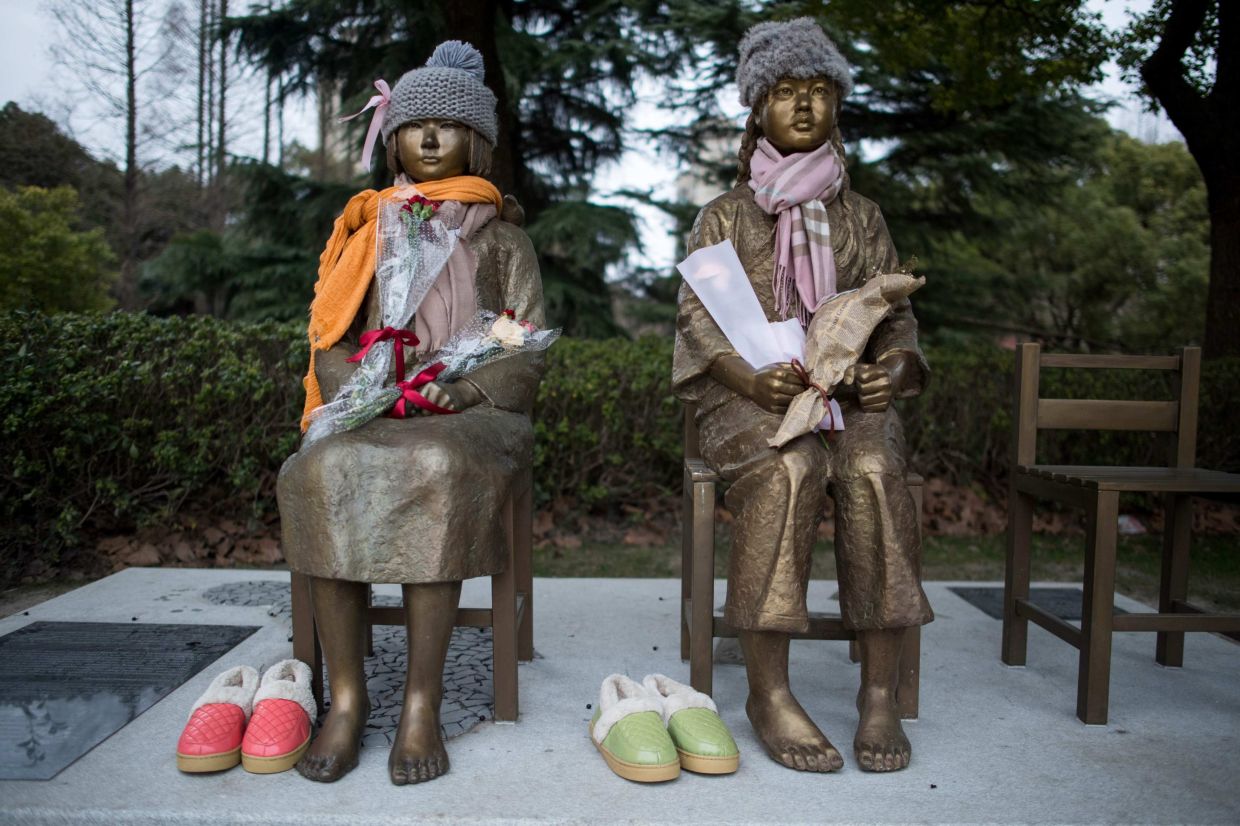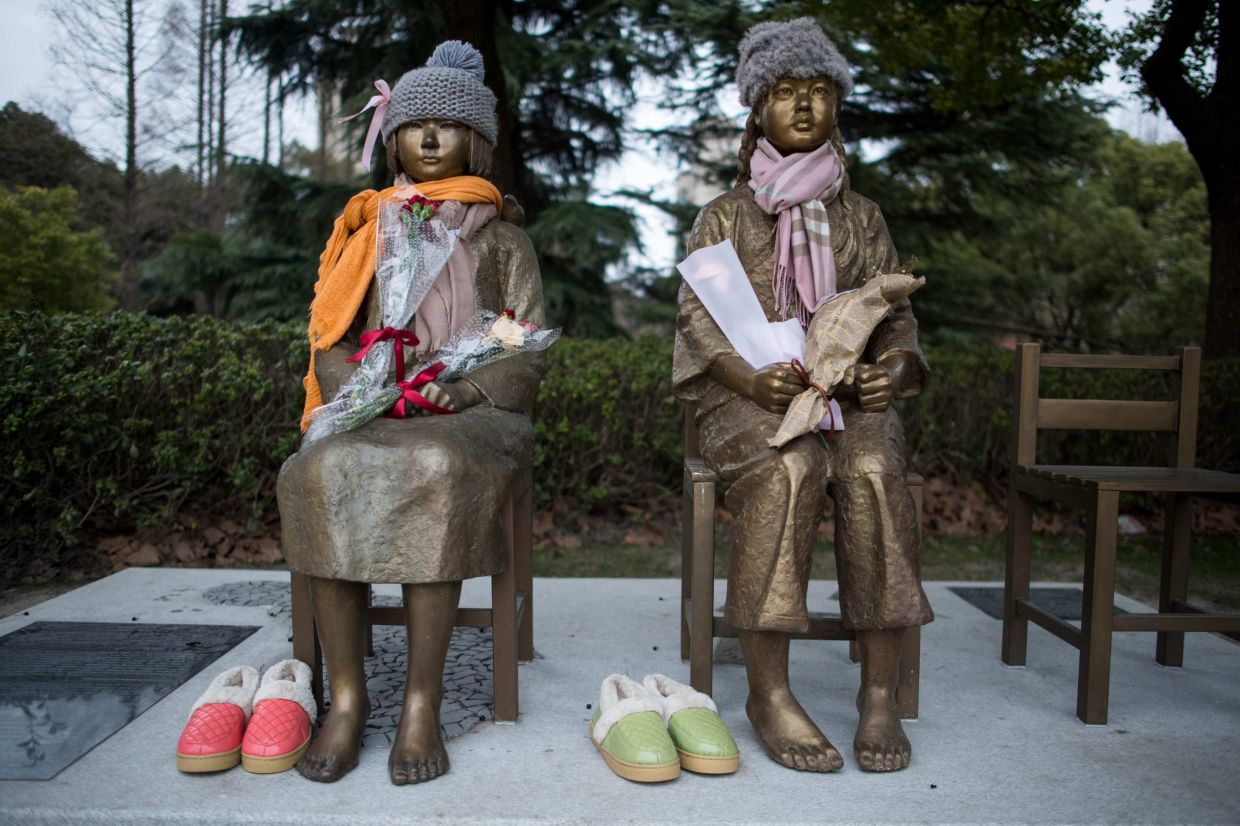
Survivors of Japan’s wartime sexual slavery and their families have renewed their calls for Chinese courts to accept their landmark lawsuits and launch investigations as the 80th anniversary of the end of World War II approaches.
In April last year, 18 families of former “comfort women” filed a first-of-its-kind lawsuit in China at a high court in Shanxi province to seek justice for atrocities committed during World War II.
Four months later, eight elderly survivors from Hunan province – now averaging 96 years old – filed a similar lawsuit, demanding a formal apology and 2 million yuan (US$276,000) in compensation from the Japanese government for each victim.
Despite the historic importance of these cases, the provincial high courts in Shanxi and Hunan have not responded or provided a timeline for when they might take up the lawsuits, nor have they thrown out the cases.
“Time waits for no one,” said Jia Fangyi, a lawyer with Beijing Jia Fang Yi Law Firm. Jia leads a group of lawyers representing the plaintiffs in Shanxi and Hunan.
For these plaintiffs, the fight is not just for restitution but for recognition of their suffering – before it is too late.
Jia told the South China Morning Post that more than a year had passed since the submissions, yet the high courts in Shanxi and Hunan had remained silent on when the cases would be docketed. In response, the legal team has submitted formal letters to both courts, urging them to address the lawsuits without further delay.
He expressed concern that the voices of the survivors were fading as time slipped away.
“Countries including the Philippines, Japan and South Korea have already taken legal action. China‘s legal system should not remain absent from this critical pursuit of justice,” Jia said.
Describing their efforts as “a race against time”, Jia said that this year presented a “significant opportunity” for the courts to act, as it marked the 80th anniversary of the end of World War II and the Chinese people’s war of resistance against Japanese aggression.
“Our ultimate goal is to see Chinese courts address and hear these cases, ensuring that the suffering endured by the victims is not left unspoken within our legal system,” Jia said.
The Chinese government, in a 1972 joint communique with Japan to establish diplomatic ties, formally renounced its right to demand war reparations from the Japanese government. However, the document does not prevent individual victims and their families from seeking compensation and apologies directly from Japan through legal means, according to legal experts.
A survey by Shanghai Normal University’s Research Centre for Chinese Comfort Women released last August identified 418 Chinese victims who survived Japan’s system of sexual slavery during World War II.
According to the survey, conducted over three decades, 359 of the known victims were from mainland China and 59 were from Taiwan. South China’s Hainan province was home to 168 known victims, more than any other province, followed by 120 from Shanxi.
However, the number of living survivors in both mainland China and South Korea has dwindled to the single digits, and the last known victim in Taiwan died in May 2023 at the age of 92. Roughly 40 survivors were still alive in the Philippines as of last year, according to media reports.
Guo Chengxi, a lawyer representing plaintiffs in Hunan and Shanxi, explained that the provincial high courts were probably seeking guidance from the Supreme People’s Court and other authorities to review the submissions, which had likely contributed to the delayed responses.
She said the lawsuits, the first filed in China to seek justice for survivors, might be sensitive as they could affect Sino-Japanese relations.
“The passing of a survivor this year serves as a stark wake-up call, reminding us of the urgency of seeing justice served in their lifetime: are we willing to let this matter remain unresolved, leaving behind a lasting regret that will haunt history forever?” she said.
According to the Research Centre for Chinese Comfort Women, an estimated 200,000 Chinese women were forced into sexual slavery in Japanese wartime brothels. Globally, the total number of “comfort women” remains a subject of ongoing research and debate, with estimates ranging from the tens of thousands to as many as 500,000.
Between the 1990s and 2000s, several lawsuits were filed in Japanese courts by survivors in mainland China, Taiwan, the Netherlands and South Korea to seek an apology and compensation from the Japanese government. Despite this, none of the legal efforts resulted in the desired outcome for the victims.
While Japan has acknowledged its history of sexual slavery, by 2007 its courts had consistently refused to issue public apologies or provide financial reparations. Instead, they repeatedly dismissed the claims brought forward by the survivors.
In 2023, the United Nations Committee on the Elimination of Discrimination against Women concluded that the Philippines had fallen short of providing sufficient access to justice and remedies for survivors of the wartime sexual slavery system. The committee urged the Philippine government to take action by providing full reparations to the affected women.
The recent attempts to take legal action against Japan in Chinese courts marked a shift from seeking redress abroad and drew inspiration from similar cases in South Korea. In late 2023, the Seoul High Court ordered the Japanese government to pay 16 former sex slaves in South Korea 200 million won (US$146,500) each.
The pursuit of justice could prove to be a prolonged and complex process, according to some legal experts.
Japan’s reluctance to issue a formal apology for its wartime atrocities, including its use of sexual slavery, has long been a source of tension in its relations with other Asian nations, particularly China and South Korea.
Despite the rapidly dwindling number of surviving victims, their legacy and courage have been recognised in dozens of statues and monuments in countries including China, the United States, Canada, Germany and Italy. – SOUTH CHINA MORNING POST






